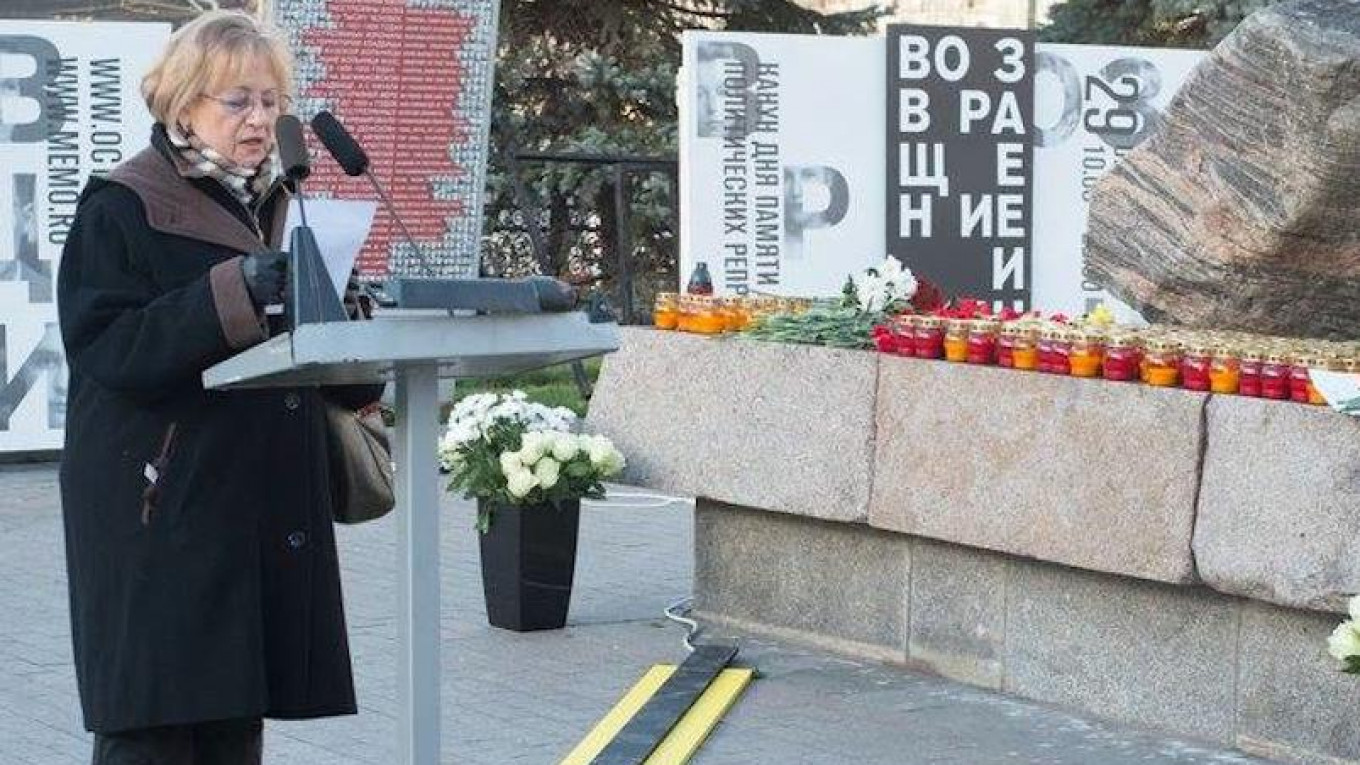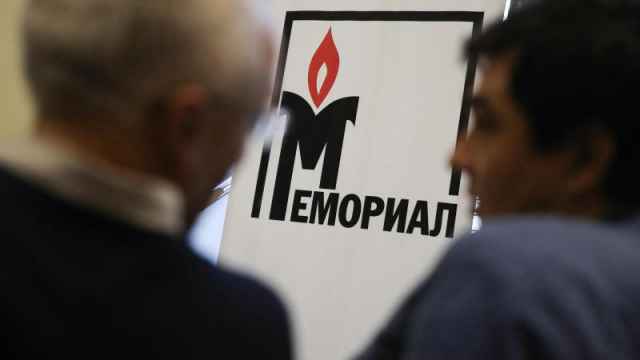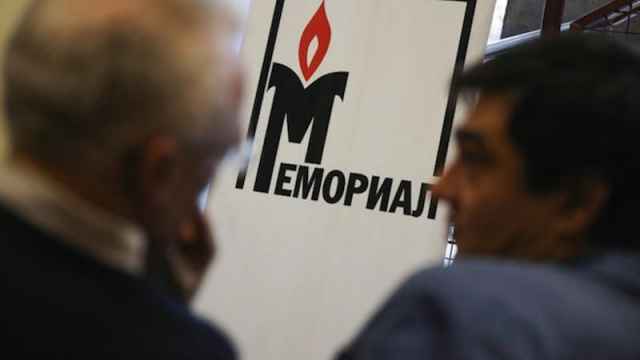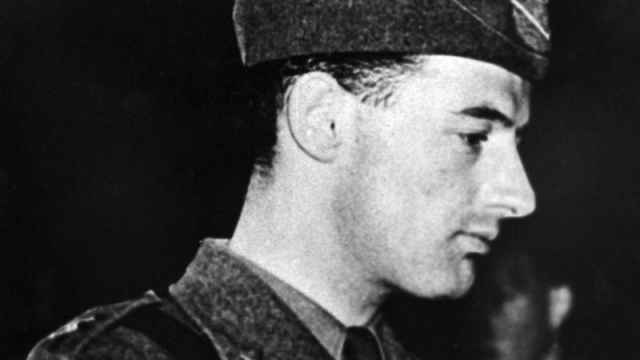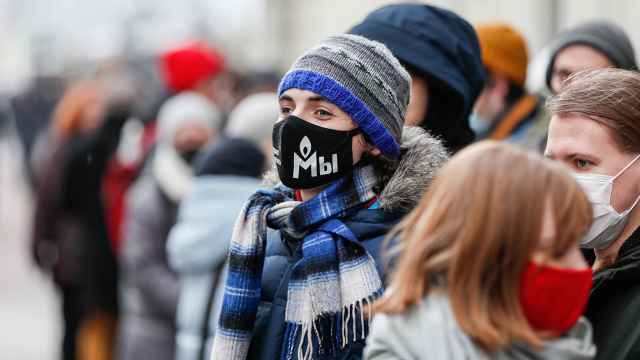On Oct. 29, the eve of the Day of Remembrance of the Victims of Political Repression, hundreds of people will gather on Lubyanskaya Ploshchad near the Solovetsky Stone. They will patiently wait in line for hours, and then, one by one, read out the names of people executed in Moscow during the darkest days of the Soviet Union.
The reading will last at least 12 hours and some 1,500 names are expected to be read in front of the Federal Security Service (FSB) headquarters, former home of its predecessor, the dreaded KGB secret police.
Titled “Returning the Names,” the event is organized by the Memorial human rights group. It has been held every year since 2006. This year it will take place despite the fact that Memorial was declared a “foreign agent” earlier this month — a label that, ironically, has strong connotations with Soviet repression.
Under the 2012 law, NGOs which receive foreign funding and engage in loosely defined political activity must register as “foreign agents” and be subject to additional scrutiny from the government.
At a time when the government is trying to construct its own narrative of the past, and more people approve of Josef Stalin’s brutal regime, such work — preserving the historical memory about victims of repression — is now more important than ever, says historian Pavel Gnilorybov.
On the day of “Returning the Names,” Gnilorybov guides tours around Lubyanka devoted to events and personalities of the Great Terror.
“We live in a country of absolute reticence. We haven’t talked about so many historical events — be it what happened in 1917, or [war in] Afghanistan, or [war in] Chechnya,” Gnilorybov told The Moscow Times. “At some point we will have to talk about all those events, and [by holding events like ‘Returning the Names’] we are preparing the grounds for it, foundations for this discussion that would make it civilized instead of just squabbling.”
10 Years and 40,000 Names
“Returning the Names” was launched ten years ago, in 2006.
“We wanted to give people the opportunity to participate, instead of just attending a rally and listening to speeches,” Alexei Makarov, a Memorial historian and one of the organizers of the event, says. “We decided to compile a list of people executed in Moscow, with small biographical notes that we could hand out to people who would read them aloud and thus make them public.”
During the past ten years, almost half of the list — that includes more than 40,000 names — has been read aloud.
Every year, more and more people take part in “Returning the Names.” People come to Lubyanskaya Ploshchad and are willing to spend hours in line no matter what day of the week it is or what the weather is like. “At first, we were afraid that the chain of readers would break on weekdays — we thought that no one would come to the event in the middle of a working day, but people were coming at all times,” Makarov says.
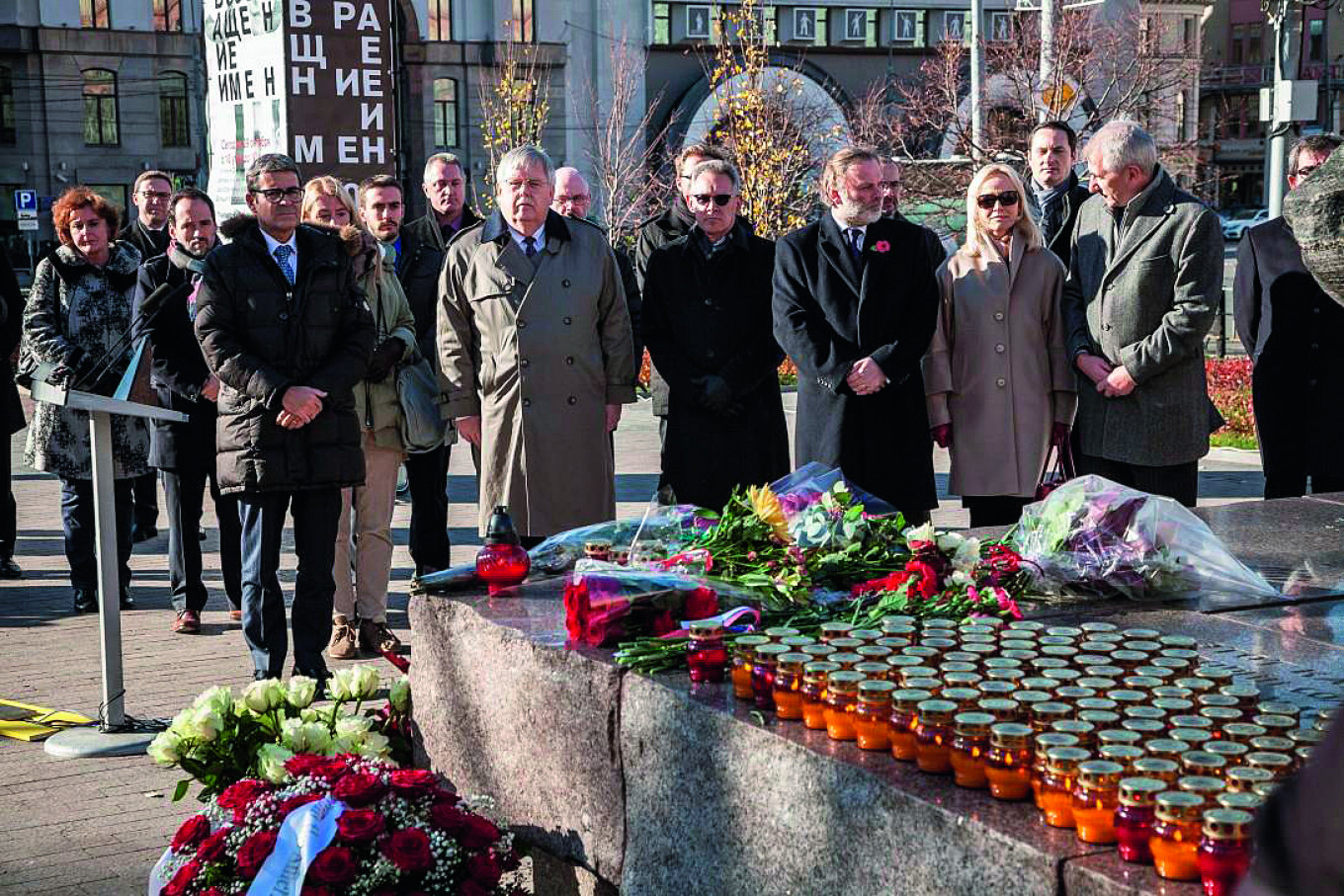
The process of reading is very simple. People are given notes with a person’s name, age, profession and the date of execution. They read them at an improvised tribune with microphones, often adding the names of their relatives that had been executed. Some say that no one from their family was executed during the terror era, but their relatives were involved in persecution of those repressed, and apologize for that.
“Every year we have several of those confessions,” Makarov says. “It demonstrates that people from both sides need to talk about it, to make their personal memories public.”
Moscow is not the only host of “Returning the Names.” In 2016, the event will also take place in a dozen Russian cities including: St. Petersburg, Yekaterinburg, Murmansk, Komsomolsk-on-Amur, Tomsk, Tula, Vladimir, Orenburg, Rostov-on-Don, Penza, Biisk, Bryansk, as well as several cities abroad such as Warsaw, London, Washington. In every city, Makarov told The Moscow Times, separate lists of victims were compiled.
Opposing Memories
In recent years, “Returning the Names” has been happening at strange times. On the one hand, the growing number of people coming to the Solovetsky Stone every Oct. 29, shows that society is willing to remember victims of terror. The government seems to be willing, too: authorities have already approved a large-scale monument to victims of political repression to be installed in the center of Moscow.
On the other hand, polls demonstrate a growing approval of Stalin’s rule; monuments to the dictator are being installed across Russia, and law enforcement officers show growing reluctance to open archives that will shed more light on the atrocities of the terror era.
There is no agreed strategy in the Kremlin, believes historian Gnilorybov. “This is why opening a monument to Ivan the Terrible in their minds stands right next to the idea of a monument to victims of political repression,” he says. “It’s ideological disarray.”
Arseny Roginsky, chair of the Memorial group, disagrees. Nowadays, the Russian state imposes its own version of historical memory — the one that is based exclusively on victories, he explains. The main milestone of this type of historical memory is, of course, the victory in the Great Patriotic War — which, inevitably, brings up Josef Stalin, the Supreme Commander, and puts him on the same positive footing as winning the war. “And there is nothing unnatural about that,” says Roginsky.
“If the memory about victories had been built in parallel with the memory about the cost of those victories, the situation would have been different. But there is no memory about the cost of the victory. Instead, there is a myth about Stalin — the master that executed people from his entourage, but was very warm to the people,” Roginsky says.
That is why reading out the names of individuals is a very important move: “It is about people. It is opposing the memory of the state and its glory,” Roginsky told The Moscow Times.


